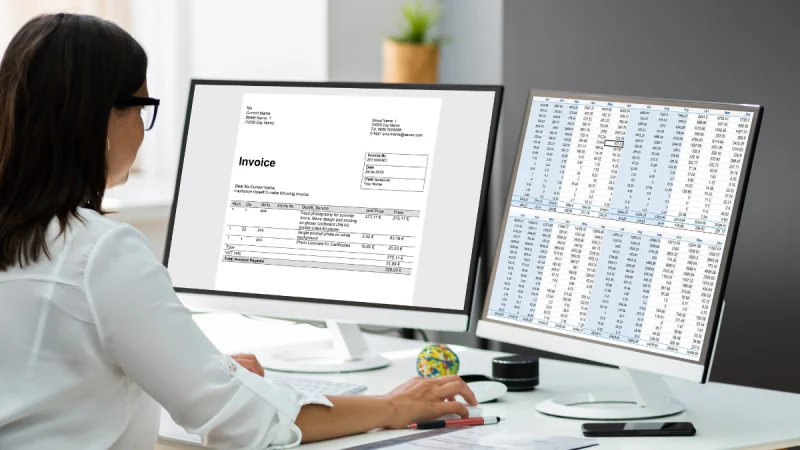Choosing the best accountants for small business is one of the most important financial decisions you’ll make. The right accountant not only helps you file taxes but also provides strategic advice, manages cash flow, ensures compliance, and helps your business grow.
In this guide, we’ll explore the top-rated accountants and accounting services for small businesses in 2025, what to look for in a qualified CPA or firm, and how to find the perfect fit for your unique needs.
Why Small Businesses Need an Accountant
While DIY software like QuickBooks and Wave can handle basic bookkeeping, professional accountants bring much more to the table:
- Tax preparation and planning
- Financial forecasting and budgeting
- Compliance with IRS and state regulations
- Payroll and sales tax management
- Business structure guidance (LLC vs. S Corp)
Having a reliable accountant can save you thousands in taxes, help you avoid penalties, and free up time to focus on running your business.
Best Accountants for Small Business in 2025
Here are some of the most trusted accounting services and platforms for small businesses:
Bench Accounting – Best for Bookkeeping & Tax Filing
Overview: Bench is a fully remote accounting service that pairs you with a team of bookkeepers and tax professionals.
- Key Features:
Monthly bookkeeping
Year-end tax filing
Financial reporting dashboard
Integrates with Stripe, Square, and Shopify
- Pricing: Starts at $249/month
- Pros:
Dedicated human bookkeeper
Beautiful interface
Ideal for online businesses - Cons:
No in-person support
May not suit complex financials
QuickBooks Live – Best for DIY + Expert Help
Overview: Combines QuickBooks Online with access to certified live bookkeepers.
- Key Features:
Monthly reports and reconciliations
Real-time collaboration
Easy migration from spreadsheets
- Pricing: $200–$400/month, plus QuickBooks subscription
- Pros:
Trusted software brand
Scalable with your business
Great for startups and freelancers - Cons:
You still need to do some setup
Tax services not included
Pilot – Best for Startups and Tech Companies
Overview: Pilot offers bookkeeping, CFO services, and tax prep tailored for tech-savvy entrepreneurs.
- Key Features
Accrual-basis accounting
Fundraising and board reporting
CFO services available
- Pricing: Starts at $499/month
- Pros:
Venture-backed and highly rated
Built for SaaS, eCommerce, and startups
Accurate GAAP reporting - Cons:
Premium pricing
Not ideal for local retail shops
1-800Accountant – Best for Tax and Entity Setup
Overview: Offers full-service accounting and tax support with CPAs across all 50 states.
- Key Features:
Year-round tax advice
LLC formation services
Dedicated CPA
- Pricing: Starts at $139/month
- Pros:
National coverage
Affordable flat-rate pricing
Ideal for new business owners - Cons:
Mixed customer support reviews
Limited real-time dashboard features
Bookkeeper360 – Best for Growing Businesses
Overview: A robust solution offering bookkeeping, payroll, and CFO services.
- Key Features:
QuickBooks and Xero integration
Payroll, AP/AR, and inventory
Business health dashboard
- Pricing: Starts at $399/month
- Pros:
Excellent support
Scalable as you grow
Industry-specific solutions - Cons:
Not suited for solopreneurs
Higher starting cost
What to Look for in an Accountant for Small Business
When choosing an accountant, consider the following:
| Feature | Why It Matters |
| CPA License or Certification | Ensures professional training and ethics |
| Industry Experience | Familiarity with your niche means better insights |
| Availability | Can you reach them when you need them? |
| Service Range | Bookkeeping, payroll, tax filing, financial advising |
| Cloud Access | Offers real-time access to reports and dashboards |
| Pricing Transparency | Avoid hidden fees or hourly surprises |
Local vs. Online Accountants: Which Is Better?
| Type | Best For |
| Local Accountant | In-person meetings, complex audits |
| Online Accountant | Affordability, speed, remote convenience |
Tip: Many online accountants now offer video calls and shared portals, making remote work seamless.
Benefits of Hiring a Small Business Accountant
- More Time: Focus on running your business, not balancing books
- Fewer Errors: Reduce risk of costly tax or payroll mistakes
- Financial Insights: Access accurate, up-to-date reporting
- Tax Savings: Take advantage of deductions and credits
- Audit Protection: Support during IRS reviews or audits
How to Find the Best Accountant Near You
If you prefer local service, search:
- “Best small business accountant near me”
- Check Google Reviews, Yelp, and BBB ratings
- Ask fellow business owners for referrals
- Use directories like AICPA.org or Xero Partner Directory
Tip: Interview at least 2–3 accountants before making a decision.
Red Flags to Watch Out For
- No license or unclear credentials
- Poor or no online reviews
- Avoids answering specific questions
- Charges vague or hourly-only rates
- Lacks experience in small business or your industry
Should You Use an Accountant or DIY Software?
| Scenario | Recommended Approach |
| Just started, low volume | DIY or low-cost service |
| Filing taxes or forming an LLC | Online CPA or accounting firm |
| Rapid growth or funding needs | Full-service accounting firm |
| International transactions | Accountant with global expertise |
Conclusion
Finding the best accountant for your small business can feel overwhelming, but the right partner can transform your operations, save you money, and provide peace of mind. Whether you choose a local CPA or an online accounting service, the key is to find someone who understands your business, communicates well, and offers transparent pricing.
Take the time to vet your options—and your bottom line will thank you.
FAQs
1. How much does a small business accountant cost?
Prices range from $100 to $500+ per month, depending on services, location, and business size.
2. Can I use an online accountant for my local business?
Yes. Most online accountants serve clients nationwide and offer excellent virtual support.
3. What’s the difference between a CPA and a bookkeeper?
A bookkeeper handles daily transactions and reconciliation, while a CPA offers tax advice, planning, and compliance.
4. How often should I meet with my accountant?
Monthly or quarterly check-ins are recommended, especially during tax season or business changes.
5. Do I still need accounting software if I have an accountant?
Often yes. Most accountants use tools like QuickBooks or Xero to collaborate and maintain transparency.
Also read: HIPAA Compliant CRM: What It Is and Why Your Healthcare Business Needs One









